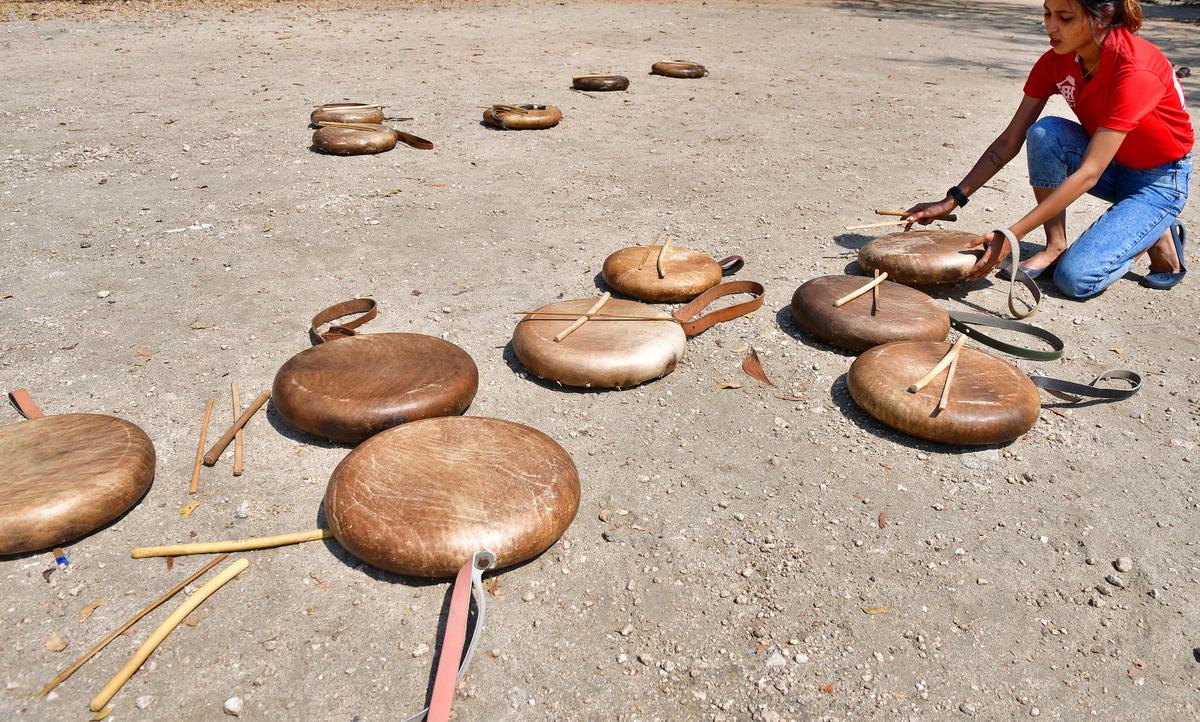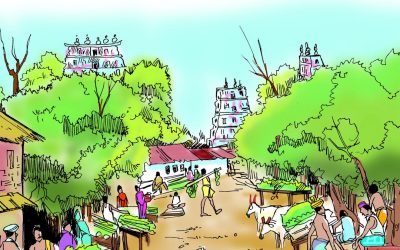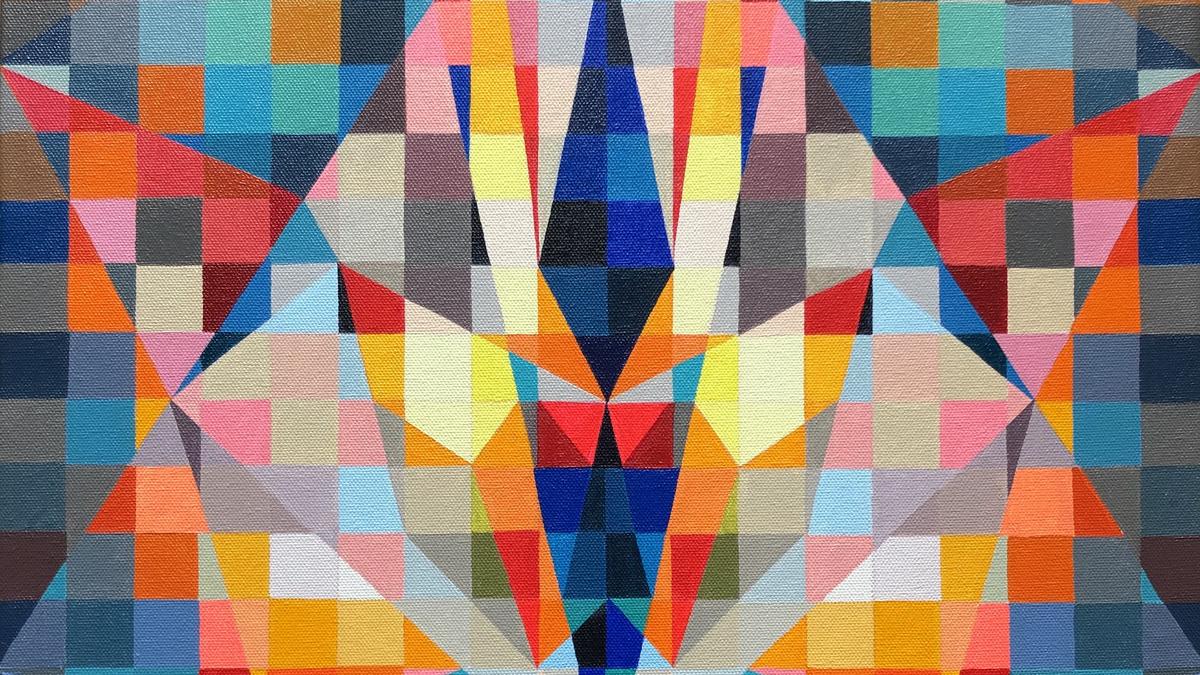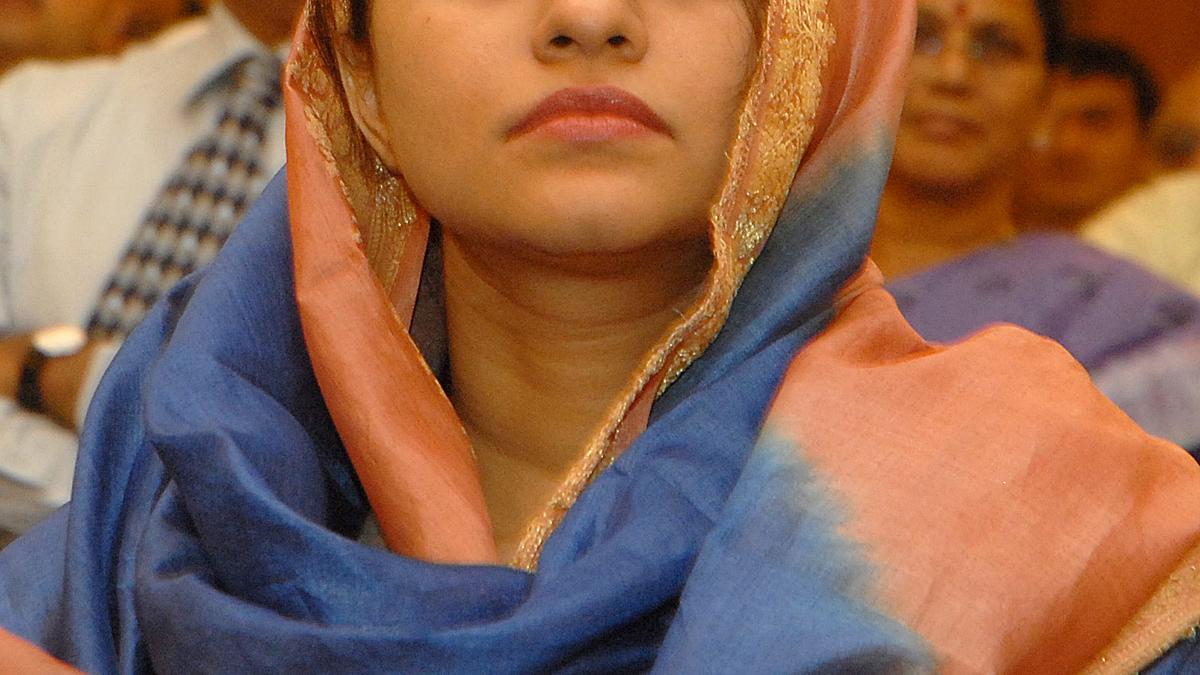Veteran parai artiste Velu Aasan, who won the Padma Shri 2025, on the ancient Tamil folk art form

Parai artiste Velu Aasan, who is based in Alanganallur near Madurai
| Photo Credit: MOORTHY G
R Velmurugan was standing with onlookers at Alanganallur’s yearly Muniyandi temple festival when his uncle Saevugan and troupe were playing the parai. Velmurugan, who is now known as Velu Aasan (‘aasan’ means teacher in Tamil), was ten years old then. “I don’t know what came over me,” recalls the 55-year-old over phone from Mettamalai village near Sattur in Virudhunagar district. “My body started moving to the beats spontaneously.” His uncle then offered the percussion instrument to Velu. “That was the first time I held the parai,” remembers Velu, who has won the Padma Shri this year for his contribution to the Tamil folk-art form.
He has won the Padma Shri 2025 for his contribution to the ancient Tamil folk art form.
| Photo Credit:
MOORTHY G
Velu has taught hundreds of men and women to play the parai. His students, spread across Tamil Nadu, have turned trainers to start their own troupes. He started his troupe Samar in 2010, and apart from India, has played in China, the US, Dubai, Sri Lanka, and Singapore. “Samar means war,” says Velu. It is to signify the spirit of rebellion the instrument stands for.
For long, parai was looked upon with the same disdain reserved for people from oppressed communities who played it. These men, forced to perform for long hours for meagre salaries, were often not treated with the respect deserving of artistes. Artistes like Velu have changed the tide in Tamil Nadu. He took parai to the world stage and the film industry, breathed new life into its beats and feet movements, attracting young men and women to the art form. Today, he teaches in schools and colleges across the state, apart from performing at events and crafting the instrument himself.

Parai is now popular among the young and old in Tamil Nadu
| Photo Credit:
PERIASAMY M
His journey was not easy. “My father and uncles played parai; but even then, many relatives, including my mother, did not like to see me play,” says Velu. His relatives would ask him not to come anywhere near their homes after playing it since the instrument is associated with funerals, he says. But the parai and its rhythm were so ingrained in his psyche that nothing could shake his resolve.
“In my younger years, my hands would keep tapping every flat surface I came across,” he says. Bamboo baskets, telephone posts, his head, his tummy, water tanks, hospital stretchers… “My father Ramayya would take me to the movies to teach me the beats from songs,” he recalls. “He would tap his thighs following the beats from the screen, and I would repeat after him.”
Velu picked up techniques from various vaathiyars he came across. He learned feet movements from Kattapas from Natham, absorbed the skill of performing with a large troupe in a cramped space from Mariappan and Rasamani. Despite his love for the art form, life forced him to remain out of touch with it for almost eight years. During this time, Velu did several odd jobs: he was a load man, lift operator, hospital ward boy. “I finally decided to embrace parai: I realised I was doing nothing wrong,” says Velu.
When Velu first started his own troupe, his chief aim was to ensure his men were paid well. “When they saw this, more and more artistes wanted to be a part of our set,” he says. He named his troupe Samar at music director Ilaiyaraaja’s office in Chennai when he was there to play for a Tamil film. The parai has taken Velu places — he has played for several Tamil films such as Kumki, Kayal, and the hugely popular ‘Madura kulunga’ from Subramaniapuram.
Velu says that the parai holds within it, life itself. “It can be played to celebrate every happy event in life, such as birth, a child’s coming of age, weddings, and even at funerals,” he says. The instrument conveys every possible emotion, and continues to fascinate him with its nuances. It can resonate with joy one moment, and with the slight flick of the stick, can exude anger or even melancholy. “Parai is the air that I breathe, my life force,” says Velu.
Despite all these years of performing and popularising the instrument, Velu still does not earn much. However, that does not deter him. “I want to continue taking the instrument to more people,” he says, adding: “The recent award is just the beginning. I now have more work to do.”
Published – January 28, 2025 03:43 pm IST





